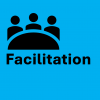Tip:
Create awareness for and encourage attendees to embrace different mental models. Disagreement in meetings is not a form of conflict. It is a requirement to find the best possible solution.
Details:
Rory Sutherland, in his book Alchemy: The Surprising Power of Ideas That Don’t Make Sense, offers a thought-provoking line: “The opposite of a good idea can also be a good idea.” At first glance, this seems contradictory. But when you think about it, the statement is an invitation to consider different mental models and the value of contrasting perspectives.
In meetings, we often assume there must be one “correct” way forward. We tend to frame discussions as good versus bad, efficient versus inefficient, or practical versus impractical. Yet reality is rarely that binary. Different contexts call for different approaches, and sometimes a solution that seems opposite to conventional wisdom can unlock surprising opportunities.
This is why disagreement shouldn’t be avoided but embraced — it’s a vital form of productive conflict. When participants bring diverse models of thinking to the table, the clash of ideas forces everyone to question assumptions and test alternatives. It is often in the tension between opposing viewpoints that the most creative solutions emerge.
By embracing this mindset, meetings shift from seeking quick consensus to striving for deeper understanding. The result: better decisions and stronger buy-in.

